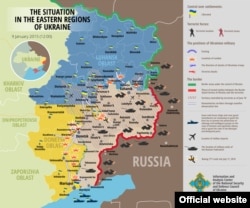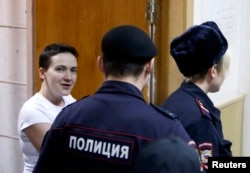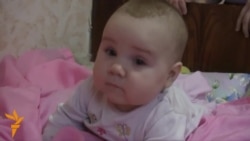US To Shrink NATO Infrastructure, Boost Ukraine-Linked Rotation
Washington (dpa) -- The US military will further reduce its physical footprint in Europe while expanding support for rotating troops throughout eastern and central Europe, Pentagon officials said Thursday.
The announcement came at the end of a two-year review of the US military infrastructure in Europe that will see changes mainly in Britain, Germany, Italy and Portugal, said Derek Chollet, assistant secretary of defence for energy, installations and environment.
The return of 15 US military sites to the host countries and other changes will save 500 million dollars a year in infrastructure costs in Europe and "help support" the central and eastern Europe rotation schedule, officials said at a press briefing.
The US said it plans to use the savings to build the capacity of its newer allies as well as Ukraine, Georgia and Moldova.
Most affected by the changes will be Britain. The US will permanently station its first two squadrons of the long-awaited F35 joint strike fighter jets - expected to be introduced from 2018-2021 - at the RAF's Lakenheath air base while pulling out of Mildenhall, Alconbury and Molesworth bases.
The Lakenheath decision, while not part of the infrastructure review, will require adding 1,200 personnel to support the F35s.
Chollet and John Conger, who led the two-year review, said that the reductions in physical plants will not diminish the US commitment to its European allies nor the current deployment of 67,000 US troops in Europe.
The rotating troops in eastern and central Europe have been
"piggy-backing on existing facilities" that are not necessarily
meeting their needs, Chollet said.
"A lot changed from a year ago," Chollet said, adding that the threat from Russia to Ukraine lent new urgency to the two-year review process.
The officials did not mention specific additions of infrastructure in eastern and central Europe.
In total, the infrastructure changes will mean the elimination of 1,200 military support positions and the relocation of 6,000 US personnel.
Up to 1,100 host nation positions could be eliminated, and another 1,500 local employees could be affected by relocations, officials said.
"The savings that we will gain will allow us to maintain a strong force presence into the future," Chollet said.
Secretary of Defence Chuck Hagel acknowledged that some local workforces would be reduced, and said he valued the "tremendous support" they have provided for decades.
"In the end, this transformation of our infrastructure will help
maximize our military capabilities in Europe and help strengthen our important European partnerships," he said in a statement.
Flash from AFP:
Six killed, including four soldiers, in Ukraine clashes: officials
Ukraine Says Separatists Intensifying Rocket Attacks
KIEV, Ukraine (AP) -- Ukrainian military officials say separatists in the east have intensified their shelling of government positions ahead of peace talks expected in the coming week.
The press office for military operations in eastern Ukraine said Friday that army outposts were targeted 50 times by small arms fire, mortars and rockets.
Intensification in hostilities comes one month after a renewed truce led to a lull in the fighting that broke out in the spring.
An AP reporter heard rockets being fired Thursday evening into the separatist stronghold of Donetsk -- an indication that government forces are also likely breaching the cease-fire.
The leaders of Ukraine, Russia, Germany and France are expected to meet Thursday in Kazakhstan to consider solutions to the conflict. The talks have not yet been confirmed.
Here is today's situation map of eastern Ukraine by the National Security and Defense Council:
By RFE/RL's Ukrainian Service
KYIV -- Ukrainian military pilot Nadia Savchenko has been placed in solitary confinement at a pretrial detention center in Moscow.
Savchenko's lawyer Mark Feigin told RFE/RL on January 9 that she was moved to solitary confinement due to the hunger strike she has been holding for almost a month.
Savchenko was captured by pro-Russian separatists in eastern Ukraine in June and jailed in Russia in July.
Russian authorities have charged her with complicity in the deaths of two Russian journalists who were killed covering the Ukraine conflict.
Savchenko denies the charges and says her transfer to Russia was illegal.
Feigin said that Savchenko, who underwent tests at a psychiatric facility against her will, has been found mentally fit to stand trial.
He said she has been under psychological pressure from investigators seeking to persuade her to plead guilty.
Savchenko's sister, Vira Savchenko, told RFE/RL that her sister is accepting glucose intravenously and drank some tea on Orthodox Christmas Day on January 7.
She has been mainly ingesting warm water for 26 days.
WATCH: In December, a family in eastern Ukraine was torn apart by fighting between government troops and separatists rebels. Baby Nika and her brother Vitya lost their mother and their home in a shell attack. The children's aunt is now taking care of them and her own young children as they struggle to put their lives back together. (Produced by Shahida Yakub, RFE/RL)
EU countries are calling for an alternative to Russian "propaganda":
The countries of Britain, Denmark, Estonia, and Lithuania have called on the European Union to create information alternatives to Russian propaganda.
In a letter to EU foreign-policy chief Federica Mogherini, foreign ministers from the four countries said Moscow was suppressing independent media and increasing "disinformation" to counter Western criticism over the war in Ukraine.
The letter added that Kremlin propaganda aims to undermine EU and Western unity, and called on the EU to create alternative sources of information to counter Russian propaganda by 2016.
The call comes just days after EU President Latvia announced it is considering plans to launch a Russian-language TV channel with EU support.
A Foreign Ministry official said a final decision was due to be taken in May.
Nearly 40 percent of the population in Latvia and neighboring Estonia are native Russian speakers and regularly watch Russian-based television. (AFP, BuzzFeed, and Euractiv.com)








